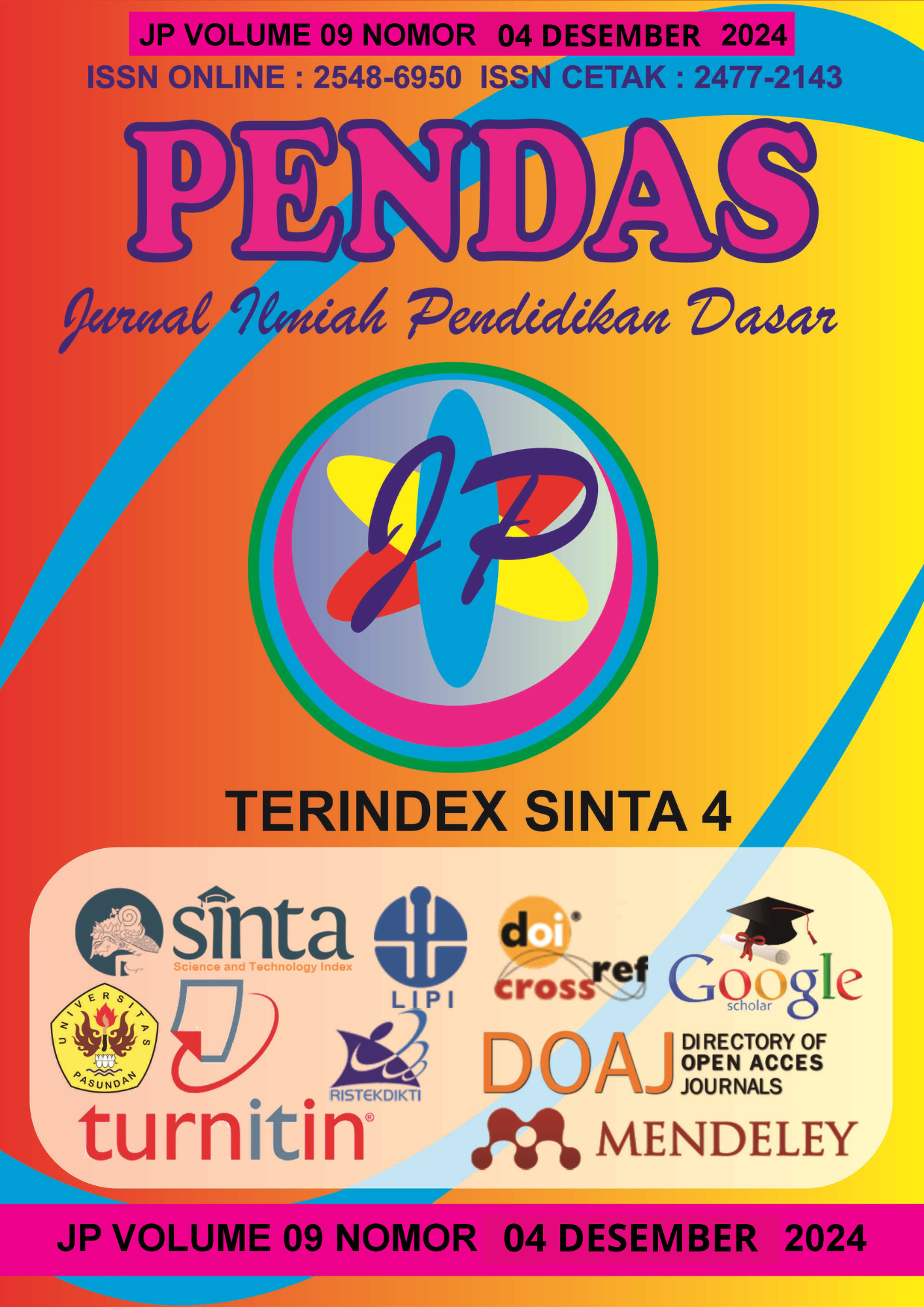KONSEP PENDIDIKAN PROFETIK PILAR HUMANISASI DALAM PEMBELAJARAN IPS
DOI:
https://doi.org/10.23969/jp.v9i04.19486Keywords:
humanization, prophetic education, social studies learningAbstract
Education provides space for humans to improve resources to face the challenges of scientific and technological advances in today's globalization. Ideal education is not only limited to cognitive aspects but also spiritual, moral and social aspects so as to prevent character degradation in the younger generation. These aspects are listed in the humanization pillar of prophetic education which refers to efforts to make education a vehicle in fostering a balanced personality, in accordance with prophetic teachings that prioritize values, norms, spirituality, justice and concern for others. Research conducted with a qualitative approach to this literature aims to explore the concept of prophetic education humanization pillars in social studies learning. Social studies learning as part of the education curriculum offers a great opportunity to apply the concept of humanization of prophetic education. Through social studies learning, students not only learn about the structure of society and social interaction, but also understand the human values advocated by prophetic teachings. By applying this concept in social studies learning, it is hoped that educators can help students internalize the moral and ethical values needed to become citizens who contribute positively to society.
Downloads
References
Anisa, R., Soraya, S.Z., & Nurdahlia, D. . (2021). Konsep Ilmu Sosial Profetik Kuntowijoyo terhadap Pengembangan Pendidikan Islam. Jurnal Ilmu Pendidikan Islam, 5(2), 93–99. https://doi.org/10.30736/ktb.v5i2.682
Firmansah, M. L. . (2022). Curriculum development and message design in E-learning based contextual using animation for Determinant Matrix Course. International Journal of Curriculum and Instruction, 14(3), 1813–1830. https://eric.ed.gov/?q=source%3A%22International+Journal+of+Curriculum+and+Instruction%22&ff1=dtySince_2003&ff2=locIndonesia&id=EJ1364267
Ilmi, M. (2020). Implementasi Nilai-Nilai Pendidikan Profetik dalam Pembentukan Karakter Siswa melalui Pembelajaran IPS di SMP Brawijaya Smart School. In Skripsi. Universitas Negeri Maulana Malik Ibrahim.
Jannah, M., & S. (2023). Konsep Pendidikan Profetik Dalam Pembelajaran Pendidikan Agama Islam (Studi Pemikiran Kuntowijoyo). IJRC: Indonesian Journal Religious Center, 1(3), 149–159.
Masrifatin, Y. (2019). Konsep Pendidikan Profetik sebagai Pilar Humanisasi. Jurnal Lentera Kajian Keagamaan, Keilmuan Dan Teknologi, 18(2), 165–174. https://doi.org/https://doi.org/10.29138/lentera.v18i2.142
Ningsih, W., Nisa, P., & Septiyani, T. (2024). Implikasi Pilar Humanisasi Pendidikan Profetik dalam Pendidikan Karakter. Morfologi: Jurnal Ilmu Pendidikan, Bahasa, Sastra Dan Budaya, 2(1), 277–286. https://doi.org/10.61132/morfologi.v2i1.315
Pradana, I. W. . (2016). Konsep Pendidikan Profetik di Era Globalisasi dan Relevansinya terhadap Pendidikan Agama Islam Telaah Pemikiran Kuntowijoyo (Issue June). Universitas Islam Negeri Sunan Kalijaga.
Rusman, H. (2022). Implikasi Pilar Humanisasi Pendidikan Profetik dalam Pendidikan Karakter. Jurnal Ilmiah Edukatif, 8(2), 188–202. https://doi.org/10.37567/jie.v8i2.1853
Sahronih, S. (2018). Implementasi Nilai-Nilai Pendidikan Moral Anak Sekolah Dasar Di Era Digital. Prosiding Seminar Dan Diskusi Nasional Pendidikan Dasar, 463–468.
Surahman, E., & Mukminan. (2017). PERAN GURU IPS SEBAGAI PENDIDIK DAN PENGAJAR DALAM MENINGKATKAN SIKAP SOSIAL DAN TANGGUNG JAWAB SOSIAL SISWA SMP. Harmoni Sosial, Jurnal Pendidikan IPS, 4(1), 1–13. https://doi.org/10.1136/bmj.3.5922.25
Syarif, Z. (2014). Pendidikan Profetik dalam Membentuk Bangsa Religius. Tadrîs Jurnal Pendidikan Islam, 9(1), 1–16. https://doi.org/https://doi.org/10.19105/tjpi.v9i1.397
Yamin, M., & S. (2020). Pembangunan Pendidikan Merdeka Belajar (Telaah Metode Pembelajaran). Jurnal Ilmiah Mandala Education, 6(1), 126–136. https://doi.org/10.58258/jime.v6i1.1121
Downloads
Published
Issue
Section
License
Copyright (c) 2024 Pendas : Jurnal Ilmiah Pendidikan Dasar

This work is licensed under a Creative Commons Attribution 4.0 International License.














































